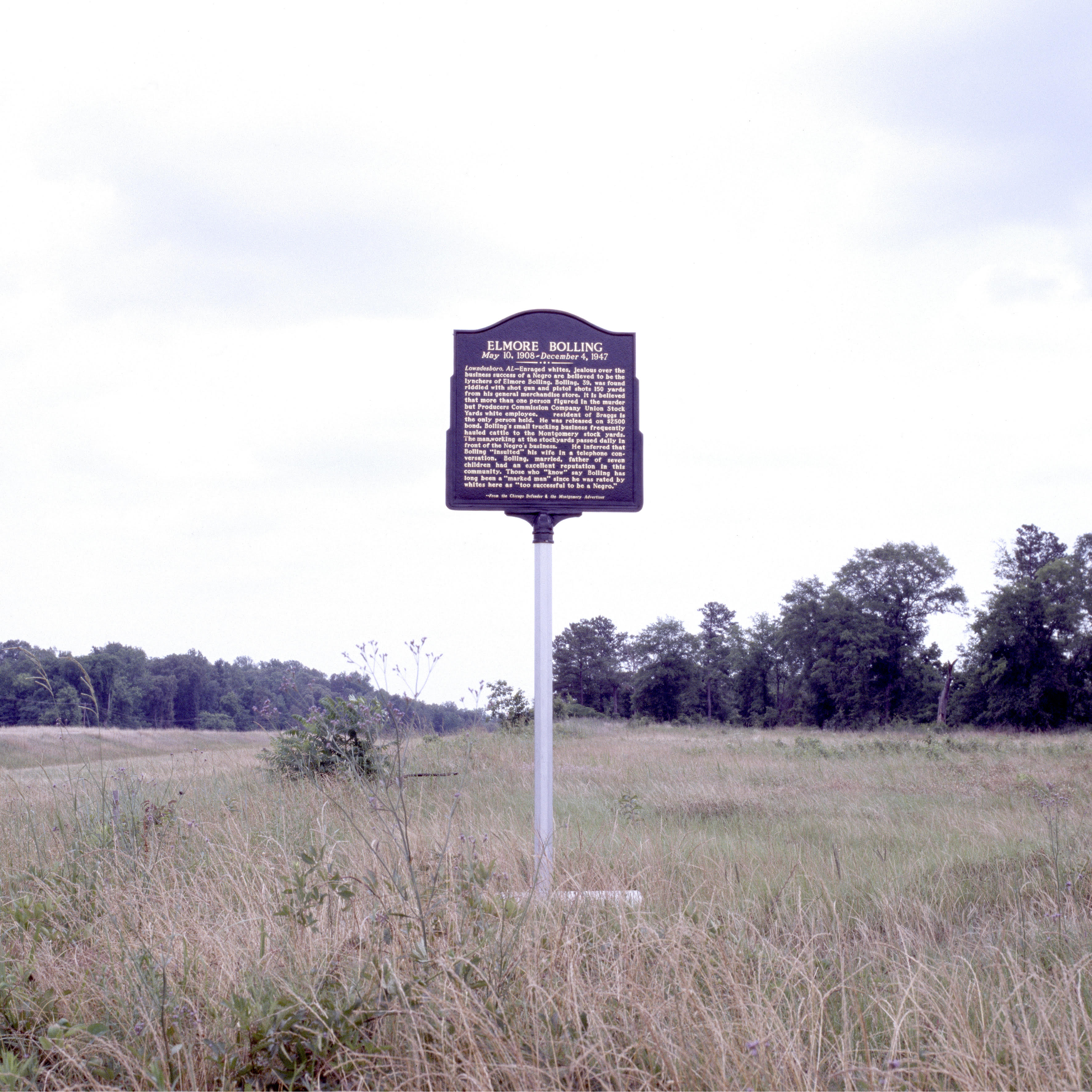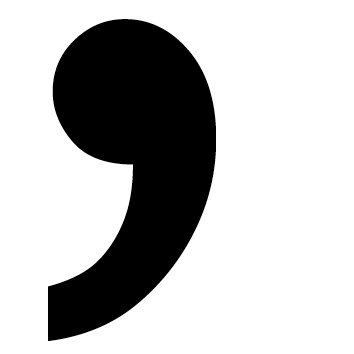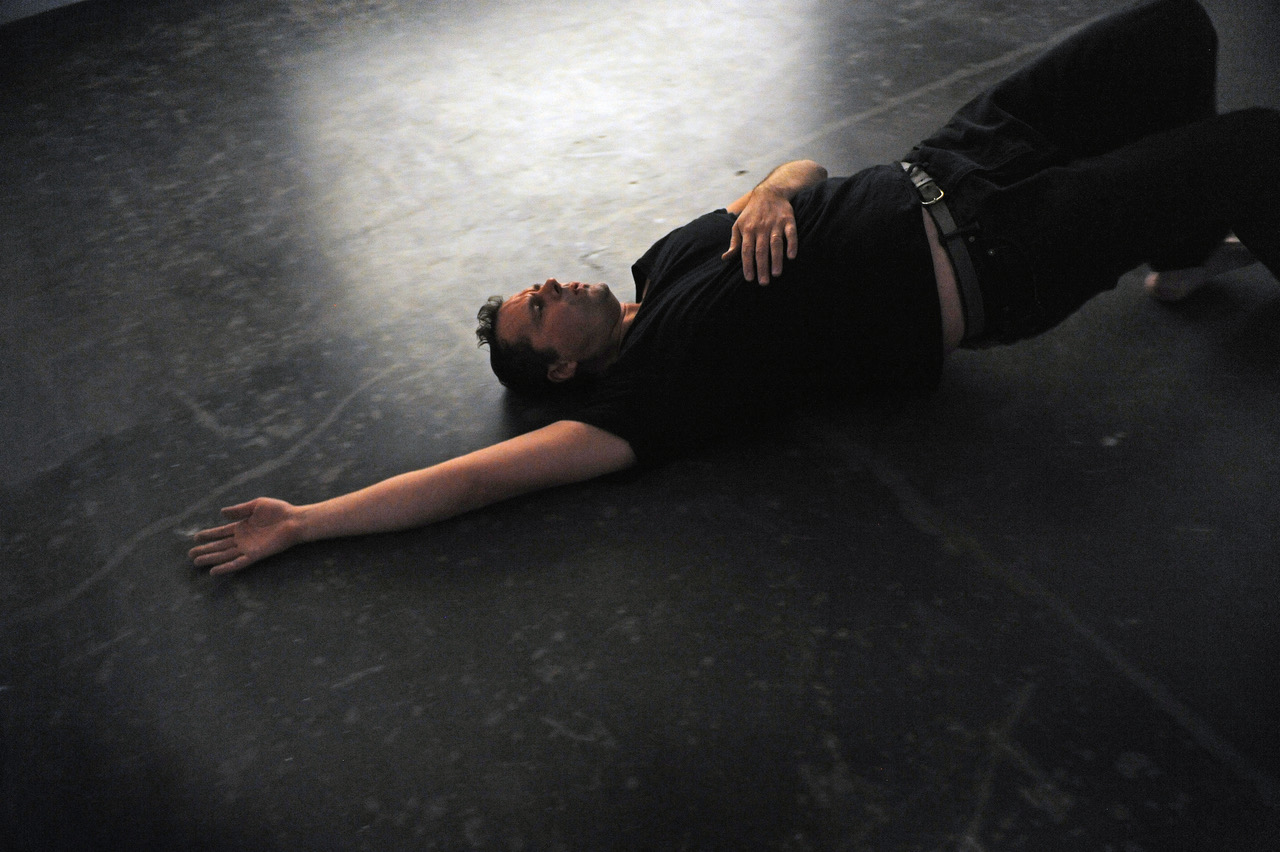What is Power?
Jeremiah Day with the Fred Rogers Dewey Legacy Project and Dana Berman Duff, featuring a talk with JoAnne Bland
3 June–9 July 2023
Preview: Friday 2 June 6–8pm, performance by Jeremiah Day at 7pm
Online talk by Civil Rights Activist JoAnne Bland: Tuesday 27 June 7pm
Flat Time House is pleased to partner with Arcade to present What Is Power? a new exhibition by Berlin based American artist Jeremiah Day. Using photography, performance, text and installation, Day investigates art’s capacity for the civic and re-examines political conflicts and resistances. His personal narrative style unfolds subjective traces to ground political thinking in tender experience.

Jeremiah Day The Lowndes County Idea (Bollings Lynching Marker I) 2008 Photograph (Type C-print)
For What Is Power? Jeremiah Day mobilizes multiple voices engaged in civic activism. The title of the exhibition derives from an essay by Day’s friend and mentor Fred Dewey (1957-2021) a democracy activist, writer, artist and publisher. He organised public readings, which he called ‘working groups’, of Hannah Arendt’s writings on freedom and thinking. Dewey wanted readers to envision a different kind of politics, where people can claim their own power. The exhibition includes a new commission from the Fred Rogers Dewey Legacy Project: Reading Aloud: What Is Power? by Fred Dewey, a film by Dana Berman Duff created from one of Dewey’s most penetrating texts. This project extends Dewey’s belief that in the potential of gathering plural voices around a common object.
Day has chosen to situate Fred Dewey’s thinking in dialogue with the long-term and ongoing project The Lowndes County Idea, which includes photography, video documentation, performance and writing. The project explores the Lowndes County Freedom Organisation (LCFO), a pioneering independent African-American political effort based in rural Alabama, that inspired the Black Panther Party. Since 2008, Jeremiah Day has returned again and again to Alabama, seeking how exemplification, landscape and the civic role of art intersect in the commemoration of the LCFO. Whilst underlying issues of race and freedom continue to resonate, Day suggests that there is still more to discover and preserve from the laboratory for radical democracy at Lowndes, whilst presenting the issues of responsibility involved with discussing and depicting such a history.
Jeremiah Day’s attraction to affirmative political examples emerged directly from his dialogue and work with Fred Dewey. A publication included in the exhibition presents a discussion that took place in Lowndes County between Jeremiah Day and Fred Dewey alongside conversations with scholar of civil rights and the Black Power movement Hasan Kwame Jeffries, and civil rights activist and military veteran JoAnne Bland.
To expand on this conversation Day has invited JoAnne Bland, who grew up and lives in Selma, Alabama to contribute a special online talk for the exhibition. Bland became active in the civil rights movement when she was eight years old – part of the famed ‘Children’s Crusade’, and marched across the Selma bridge with Martin Luther King, Jr. Bland later came to realise the political meaning of memory and went on to co-found the National Voting Rights Museum to preserve the legacy and principles of ‘the struggle’. Her talks deal with the history of the Civil Rights Movement and segregation and the struggle to achieve Voting Rights.
JoAnne Bland’s contribution will be freely available to join online at 7pm Tuesday 27th June.
.jpg)
The Lowndes County Freedom Organisation, Alabama, US
Further Information
Jeremiah Day met JoAnne Bland in 2008 when researching a related Alabama political structure: the Lowndes County Freedom Organization, a mid-1960’s civil rights group formed by farmers, teachers and student activists in the very poor countryside of Alabama, which was the original Black Panther Party, and inspiration for the later, much more famous Panthers, whose imagery has produced some of the best known iconic representations of political struggle. Largely forgotten, the story of the LCFO inspired the theoretical writings of the activist Stokley Carmichael, and has many parallels with the theories of Hannah Arendt. Most importantly, the Lowndes County activists succeeded in overthrowing the white supremacist government and establishing self-government.
The exhibition is accompanied by the film essay Reading Aloud: What Is Power? by Fred Dewey directed by Dana Berman Duff. Produced by the Fred Rogers Dewey Legacy Project. The film features readers, many of whom intersected Dewey in life or work, including Will Alexander, Stephanie Bell, Dennis Cooper, Sandra Cruze, Dorit Cypis, Alexandra Epps, Laura Flanders, Simone Forti, Todd Gray, Dakota Higgins, Hedi El Kholti, Peter Kalisch, Chris Kraus, Suzanne Lacy, John Malpede, Eileen Myles, Russell Marling, Meena Nanji, Jeffrey Owens, Renée Petropoulos, Pilar Petropoulos-White, Linda Pollack, Rachel Grace Potts, Pamela Ramos, Manuel Ramos Ruiz, Trinidad Ruiz, Guy Santiago, Catherine Scott, Kyungmi Shin, Jack Skelley, A.K. Toney, Shirley Tse, Jody Zellen.

Established by Christian Mooney in 2007, Arcade offers a programme of exhibitions and a constantly evolving platform of performances, live events, talks and publications. Through these varied formats, we aim to find new modes of presentation exploring the developments and complexities in contemporary art, across a range of practices, media and concerns.

Jeremiah Day (US, 1974) studied art at the University of California (UCLA), Los Angeles (US, 1997), and completed the residency program at the Rijksakademie (2003-2004). In 2017, the artist earned a doctorate from the University of Amsterdam (VU) with the presentation of A Kind of Imagination that has Nothing to Do with Fiction: Art in Public Life, a practice based project, drawing upon Hannah Arendt and Allan Kaprow as the basis for renewed exploration of art's role in civil society. His most recent publication is If Its For The People, It Needs To Be Beautiful, She Said, (2021) produced in collaboration with Will Holder and accompanying the 2020-21 travelling solo exhibition at the Badischer Kunstverein (DE), Centre d'art Le Lait (FR), and Villa Romana (IT). Recent solo exhibitions include : Citoyenne Reprise, Jeremiah Day & collaborators, Netwerk Aalst, BE (2021); But not knowing what to do isn’t giving up, is it?, Arcade, Brussels, BE (2021); If It’s For The People, It Needs To Be Beautiful, She Said, Villa Romana, Florence, IT, Centre d’Art Le Lait, Albi, FR, Badischer Kunstverein, Karlsruhe, DE (2020); The Emily Harvey Foundation, New York, US (2018); Jeremiah Day, Museum of Modern Art, Warsaw, PL (2016). Selected group shows: Waste/d Pavilion, Episode 3, State of Concept, Athens, GR (2022); Project Palace, a centenary, Bozar, Brussels, BE (2022); Desertado (…), Galeria Municipal do Porto, Porto, PT (2019).
.jpg)
Fred Dewey (July 11, 1957 – June 2, 2021) was a writer, artist, publisher, educator, and civic activist. He was the co-founder of the Neighborhood Councils Movement in Los Angeles. He directed the Beyond Baroque Literary Arts Center in Los Angeles from 1996 to 2010 and has edited and published over twenty books on Ammiel Alcalay, Simone Forti, Jean-Luc Godard, Daniel Berrigan, Abdellatif Laabi, Jack Hirschman, Christoph Draeger, Ed Ruscha, Diane di Prima. In the mid-1990s, Dewey founded The Hannah Arendt Working Group in Los Angeles. In 2010, Dewey led the free, public seminar on the works of German-born American political theorist Hannah Arendt in Berlin, Paris, London, Oslo, Amsterdam, and Los Angeles, at public spaces, squats, and universities. Dewey was on the faculty of the fine arts graduate program at ArtCenter College of Design in Pasadena, CA. He also taught at the Frei Universitat in Berlin and Cal Arts in Valencia, California. The Fred Rogers Dewey Legacy Project (FRDLP) is an effort to preserve, enact and elaborate on Fred’s unique cultural and political work, led by Jeremiah Day, Renee Petropoulos, Lucas Riener, Brooks Roddan and Sue Spaid.
Image: Fred Dewey, second from left, at Curators of the 2000 World Beyond Poetry Festival at Beyond Baroque, Los Angeles (left to right): Felicia Montes (Self-Help Graphics), Fred Dewey (Beyond Baroque), A.K.Toney (Poet for World Stage and Beyond Baroque wearing hat), Irene Soriano (AISAREMA), Jeffrey McDaniel (Beyond Baroque) and Michael Datcher (World Stage). Initiated by Datcher and Dewey, see Dewey's 2014 School of Public Life for description of this project
.jpg)
During her lifetime JoAnne Bland has been a witness and participant in some of our nation’s most consequential civil rights battles. She began her civil rights activism in the early 60s. The Student Non-Violent Coordinating Committee (SNCC) activists organised Bland and other area children and teenagers to participate in the civil rights movement. In the front lines of the struggle, the young Bland marched on ‘Bloody Sunday’ and ‘Turn Around Tuesday’, and the first leg of the successful March from Selma to Montgomery, witnessing brutal beatings of fellow marchers by police. The young Bland was also one of seven Black students to integrate A. G. Parish High School. By the time she was 11 years old Bland had been arrested 13 times. Ms. Bland’s early involvement in the struggle against ‘Jim Crow’, American apartheid, has been the foundation for her civil and human rights work throughout her life. A much sought after speaker with a compelling personal story of civil rights activism, Ms. Bland has presented at conferences and workshops from the Smithsonian in Washington, DC to the states Maine, Wisconsin, Vermont, Minnesota, Georgia, Pennsylvania, Texas, New York, New Jersey, North Carolina, South Carolina, Iowa, Mississippi, Washington, Oregon and, of course, throughout Alabama. Currently, Mrs. Bland is owner and operator of Journeys For The Soul, a touring agency that specialises in Civil Rights tours with a major focus on Selma, Alabama.
.jpg)
Hasan Kwame Jeffries is associate professor of history at The Ohio State University where he teaches courses on the Civil Rights and Black Power Movement. Hasan was born in Brooklyn, New York, and graduated summa cum laude from Morehouse College with a BA in history in 1994. At Morehouse, he was initiated into the Pi Chapter of Kappa Alpha Psi Fraternity, Inc. He earned a PhD in American history with a specialisation in African American history from Duke University in 2002. He taught for a year at the University of Alabama in Tuscaloosa, before joining the faculty at The Ohio State University in 2003. Hasan is the author of Bloody Lowndes: Civil Rights and Black Power in Alabama’s Black Belt, which tells the remarkable story of the African American freedom movement in Lowndes County, Alabama, the birthplace of Black Power.
.jpg)
Photo: Carmen Uriarte
Dana Berman Duff was named a Cultural Trailblazer by the Los Angeles Department of Cultural Affairs for 2020-21 and a retrospective of her short films was programmed in 2022 at REDCAT in Los Angeles’s Disney Hall. Her work has been screened in the Toronto International Film Festival, International Film Festival Rotterdam, Edinburgh International Film Festival, Rencontres Internationales (Paris/Berlin), Dortmund/Cologne International Women’s Film Festival, and in over sixty international film festivals. Duff’s drawings and sculpture are in the collections of the Museum of Modern Art (New York), the New Museum, the Carnegie Museum, and the Phillips Collection, as well as in private collections. She lives in Los Angeles and Mexico.

(l) John Latham Time-Base Roller with Graphic Score Canvas, electric motor operating metal bar, wood, graphite, 1987 (r) Jeremiah Day The Lowndes County Idea (Ft. Deposit) C-print type photograph, 2008

Jeremiah Day The Lowndes County Idea (Ft. Deposit) C-print type photograph, 2008

Jeremiah Day The Lowndes County Idea (Bollings Lynching Marker I&II) C-print type photograph, 2008

Jeremiah Day The Lowndes County Idea (White Hall, Where Jamil al Amin Was Captured By FBI I&II) C-print type photograph, 2008

(l) Jeremiah Day The Lowndes County Idea (Montgomery) 2008 C-print type photograph with hand written text (r) Jeremiah Day with Hasan Kwame Jeffries, Fred Dewey, and JoAnne Bland The Lowndes County Idea: Three Conversations Booklet, 2008

Jeremiah Day The Lowndes County Idea (Montgomery) 2008 C-print type photograph with hand written text

Jeremiah Day with Hasan Kwame Jeffries, Fred Dewey, and JoAnne Bland The Lowndes County Idea: Three Conversations Booklet, 2008

(l) Jeremiah Day The Lowndes County Idea (Prologue) Single channel video, sound, 11mins 38secs, 2008 (r) Jeremiah Day The Lowndes County Idea (Scenario) Single channel video, sound, 12mins 23secs, 2008

Jeremiah Day The Lowndes County Idea (Prologue) Single channel video, sound, 11mins 38secs, 2008 (still)

Jeremiah Day The Lowndes County Idea (Scenario) Single channel video, sound, 12mins 23secs, 2008 (still)

Dana Berman Duff Reading Aloud: What Is Power? by Fred Dewey 4K video, sound, 40mins, 2023

Dana Berman Duff Reading Aloud: What Is Power? by Fred Dewey 4K video, sound, 40mins, 2023 (still)

Jeremiah Day John Jackson Story: What Kind Of - - - - - Person Are You? (Performance Notation: June 2, 2023, Flat Time House / Faith Chapel) Acrylic and ink, 2023

Jeremiah Day Fall & Rise & Descend & Roll (Performance Notation: June 2, 2023, Flat Time House / Faith Chapel) Acrylic and ink, 2023

Jeremiah Day What Fred Dewey Learned From Tahrir Square (Performance Notation: June 2, 2023, Flat Time House / Faith Chapel) Acrylic and ink, 2023

Performance by Jeremiah Day, Flat Time House / Faith Chapel, Peckham, London 2 June 2023 7pm